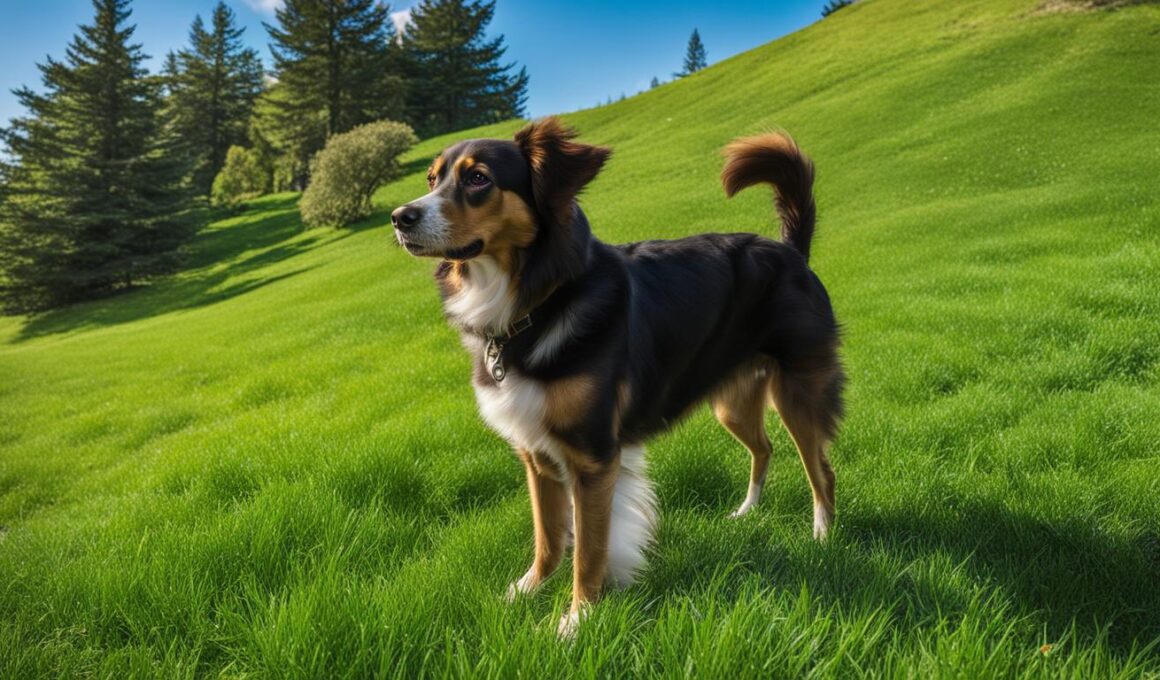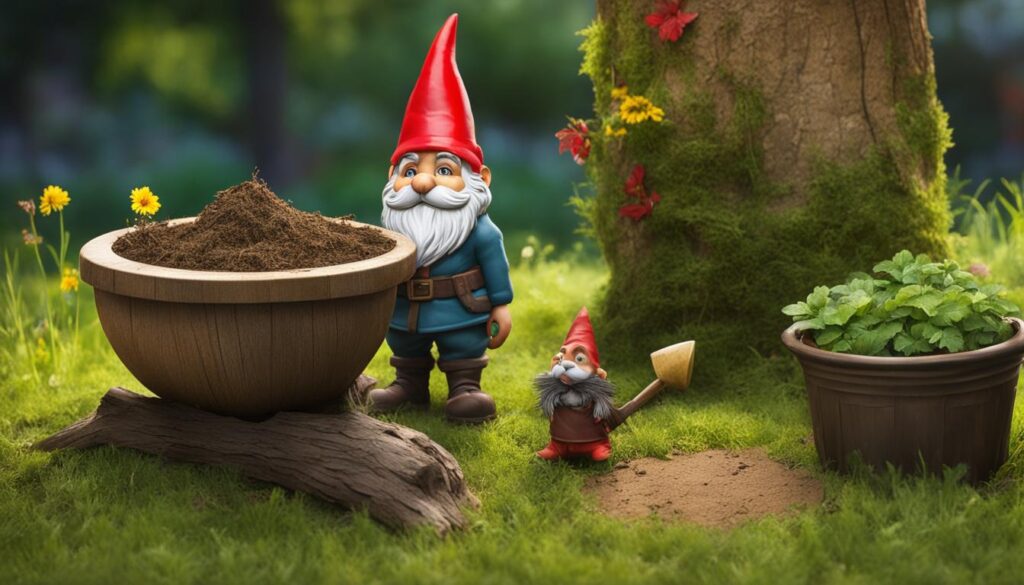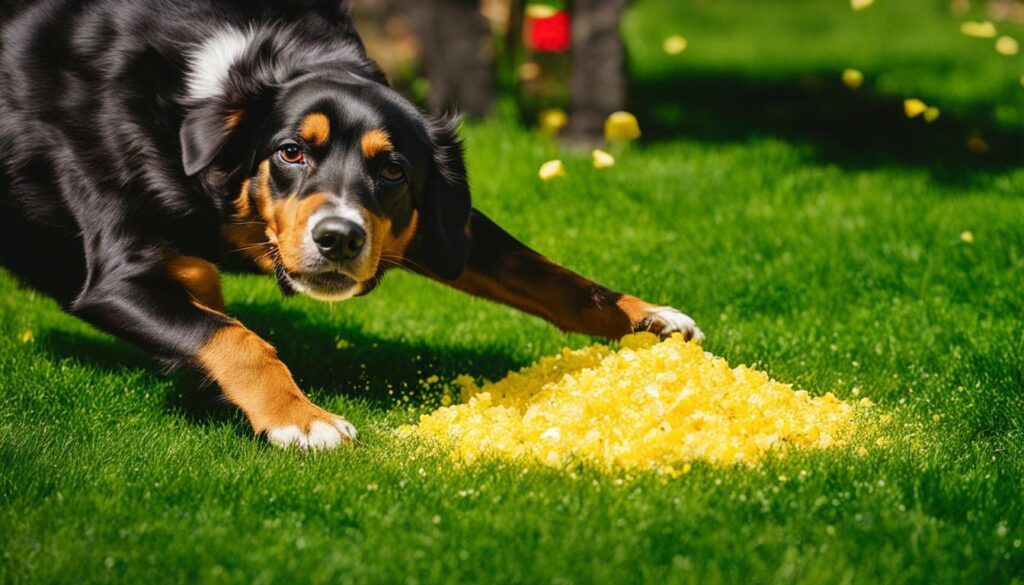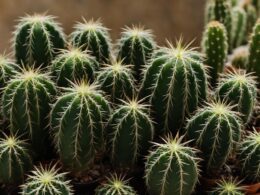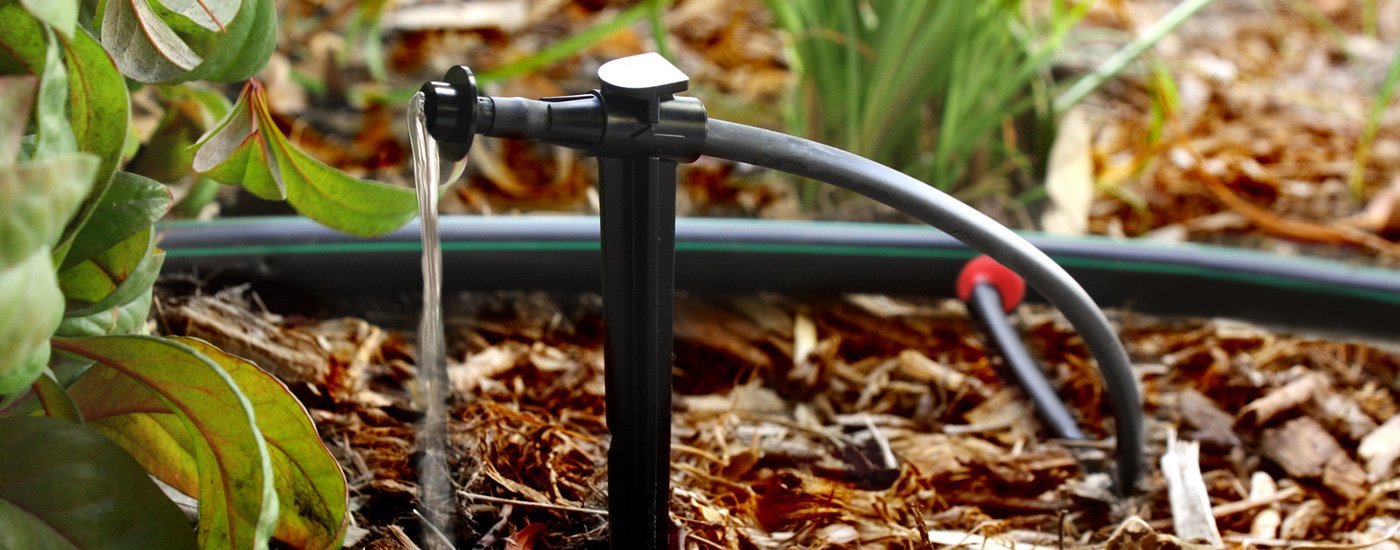Welcome to our guide on how to stop dog urine from killing grass naturally. If you’re a dog owner who loves having a lush, green lawn, you’ve likely encountered the frustrating problem of brown patches and dead grass caused by your furry friend’s urine. But don’t worry, we’re here to help you tackle this issue and restore the beauty of your lawn.
Dog urine can be detrimental to your grass due to its high nitrogen content. However, with a few simple strategies and a little bit of knowledge, you can prevent and minimize the damage caused by dog urine. In this article, we’ll explore the factors that contribute to dog urine damage, provide tips on how to prevent it, and even offer natural ways to neutralize the urine on your grass. So let’s get started and ensure that your furry companion and your lawn can coexist harmoniously.
Factors that Contribute to Dog Urine Damage
When it comes to dog urine damage on your grass, several factors come into play. Understanding these factors can help you take preventive measures to keep your lawn looking healthy and green.
The Impact of Sex and Size
Female dogs tend to leave larger brown patches on the grass compared to males. This is because female dogs have a different urinating instinct that results in a larger concentration of urine in one spot. Additionally, larger dogs naturally deposit more urine in larger surface areas, which can contribute to extensive damage.
The Role of Hydration
The hydration level of your dog plays a significant role in the damage caused by urine. Well-hydrated dogs produce a greater volume of urine that is less concentrated. This means that the impact of their urine on the grass is milder compared to dehydrated dogs who produce more concentrated urine.
The Effect of Diet
The diet of your dog can also contribute to the severity of urine damage. Dogs that consume a high protein diet tend to have higher nitrogen content in their urine. Nitrogen is the main culprit behind grass burn caused by dog urine. By regulating your dog’s protein intake, you can reduce the nitrogen concentration in their urine and minimize potential damage to your grass.
The Grass Species Matter
Not all grass species are equally vulnerable to urine toxicity. Some grasses, such as perennial ryegrass and fescue, are more tolerant of dog urine. On the other hand, certain grass species are more susceptible to damage. The choice of your grass species can significantly impact the degree of damage caused by dog urine.
Other Contributing Factors
Aside from dog-related factors, the condition of your lawn also plays a role in its susceptibility to urine damage. Unhealthy lawns, frequent fertilization, and certain grass species can make the grass more vulnerable to the effects of dog urine. This is why it’s crucial to maintain a balanced lawn care routine and select the appropriate grass species for your specific needs.
The above image illustrates the factors that contribute to dog urine damage. As you can see, understanding these factors will help you implement effective strategies to protect your grass from urine damage caused by your furry friend.
How to Prevent Dog Urine Damage on Grass
To prevent dog urine from damaging your lush green lawn, there are several effective strategies you can implement. By following these tips, you can keep your grass healthy and vibrant, while still enjoying the company of your furry friend.
Train Your Dog to Use a Designated Spot
One of the best ways to minimize the damage caused by dog urine is to train your dog to use a specific spot on your lawn. Select an area away from the main lawn, such as a designated section of gravel or mulch, that can handle the impact of urine without causing damage. This will help concentrate the urine in one area and spare the rest of your lawn.
Keep Your Dog Hydrated
Keeping your dog well-hydrated is crucial in diluting the concentration of nitrogen in their urine. Make sure your dog has access to fresh water at all times, especially during hot weather or after exercise. This will help reduce the potency of their urine and minimize damage to your grass.
Feed Your Dog a Low-Protein Diet
The nitrogen content in dog urine is primarily influenced by their diet. Feeding your dog a diet that is low in protein can help reduce the nitrogen levels in their urine, thereby minimizing the damage to your grass. Consult with your veterinarian to determine the appropriate diet for your dog.
Choose Grass Species Tolerant of Urine
When selecting grass species for your lawn, opt for those that are more tolerant of urine toxicity. Certain grasses, such as perennial ryegrass and fescue, are better able to tolerate the effects of dog urine. Consider consulting with a local lawn care professional for grass species recommendations that are suitable for your region.
Consider Lawn Alternatives
In addition to choosing urine-resistant grass, you can also explore alternative options for your lawn. Artificial grass is an excellent alternative that eliminates the risk of dog urine damage altogether. It provides a durable and low-maintenance solution that remains green and beautiful all year round. Artificial grass is also resistant to wear and tear from dogs running, playing, and urinating on it.
By implementing these preventive measures, you can protect your grass from dog urine damage and maintain a beautiful lawn. Remember to train your dog, keep them hydrated, feed them a low-protein diet, choose urine-resistant grass species, and consider lawn alternatives like artificial grass.
How to Naturally Neutralize Dog Urine on Grass
When your dog urinates on the grass, it’s important to take immediate action to neutralize the urine and minimize damage. Fortunately, there are natural methods you can use to neutralize dog urine on your lawn.
1. Water the spot: The first step to neutralizing dog urine on grass is to water the spot where your dog urinated. This helps to dilute the acidity of the urine and leach away the salt content from the soil. Use a watering can or hose to thoroughly soak the affected area.
2. Test the pH level of your soil: Testing your soil’s pH level can give you valuable information about its acidity. You can purchase a pH testing kit from a garden center or use a soil testing service. Knowing the pH level helps you determine if further soil amendments are necessary.
3. Add garden lime or calcium carbonate: If your soil’s pH level is too acidic, you can raise it to a near-neutral level by adding garden lime or calcium carbonate. These natural substances help to balance the pH and create a more favorable environment for grass growth. However, it’s important to be cautious and consider the preferences of your specific grass species before applying any amendments.
4. Tomato juice: Another natural remedy that may help neutralize dog urine is adding tomato juice to your dog’s diet. The acids in the tomatoes can help counteract the acidity of the urine. However, it’s essential to consult with your veterinarian before making any changes to your dog’s diet.
By following these natural methods, you can effectively neutralize dog urine on your grass and prevent further damage to your lawn. Remember to take prompt action and be proactive in your approach to keep your lawn green and healthy.
Tips for Protecting Your Grass from Dog Urine
Aside from preventing and neutralizing dog urine damage, there are several additional tips to help protect your grass from the harmful effects of dog urine. Incorporating these strategies into your lawn care routine can keep your grass healthy and green, even with a furry companion.
1. Water your lawn regularly: One of the simplest ways to protect your grass is by watering it regularly. This helps dilute and wash away the urine, preventing concentrated damage. Aim to water your lawn deeply, providing enough moisture to reach the root zone.
2. Reduce fertilization: Fertilizing less frequently can prevent an excessive concentration of nitrogen in the soil, which is a major component of dog urine that causes grass burn. Consult with a lawn care professional or follow the recommended fertilization schedule for your specific grass species.
3. Choose urine-resistant grass species: Consider planting urine-resistant grass species, such as warm-season varieties like Bermudagrass and Zoysiagrass. These types are more tolerant of urine toxicity and can withstand the effects of dog urine better than others.
4. Use Dog Rocks: Dog Rocks are a natural solution that can be placed in your dog’s water bowl. They filter out nitrates and ammonia from the water, reducing the nitrogen content in your dog’s urine. This helps minimize the damage caused to your grass when they urinate. To use Dog Rocks, simply follow the instructions provided by the manufacturer.
5. Mow your lawn at a higher height: Adjusting the height at which you mow your lawn can help protect it from dog urine damage. Cutting your grass slightly higher will promote healthier root growth and provide a cushioning effect, reducing the impact of urine on the grass blades.
Can Carnations Used for Dog Urine Grass Protection Harm Cats?
Yes, carnations are indeed toxic to cats. While they can be used for dog urine grass protection, it is important to ensure that cats are not exposed to them. Ingesting or coming into contact with carnations can pose serious health risks to cats.
Conclusion
Achieving a lush and healthy lawn while owning a dog requires a comprehensive approach to prevent dog urine damage. By implementing the following tips, you can protect your grass and maintain a beautiful yard.
First and foremost, train your dog to use a designated spot on the lawn. This significantly reduces the patchy damage caused by their urine. Additionally, keeping your dog well-hydrated dilutes the concentration of nitrogen in their urine, minimizing its impact on the grass. Feeding your dog a low-protein diet further reduces the nitrogen content in their urine, preventing grass burn.
Choosing the right grass species is crucial in combating dog urine damage. Opt for urine-resistant grass varieties such as Bermudagrass and Zoysiagrass, as they are known to withstand the effects of nitrogen. Alternatively, consider using lawn alternatives like artificial grass to protect your lawn from urine-induced harm.
To mitigate existing damage, water the spot where your dog urinates immediately. This helps dilute the acidity and leaches away excess salt. By testing your soil’s pH level, you can determine if any amendments are necessary to restore balance. Adding suitable soil amendments, such as garden lime or calcium carbonate, can neutralize the urine’s impact on the grass.
Furthermore, adopting a regular watering routine not only washes away urine but also strengthens the grass over time. Adjusting your fertilization practices and using urine-resistant grass can prevent an excessive concentration of nitrogen in the soil. Consider incorporating Dog Rocks in your dog’s water, as they act as natural filters, reducing nitrates and ammonia in their urine.
By combining these preventive measures and implementing these practical tips, you can keep your lawn green and healthy, even with a furry friend in your family. Enjoy a vibrant yard that accommodates both your dog’s needs and your gardening aspirations.





